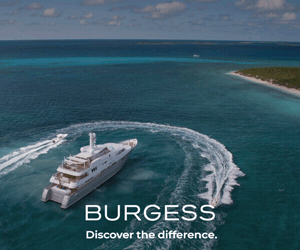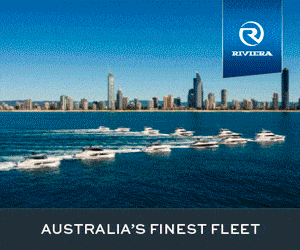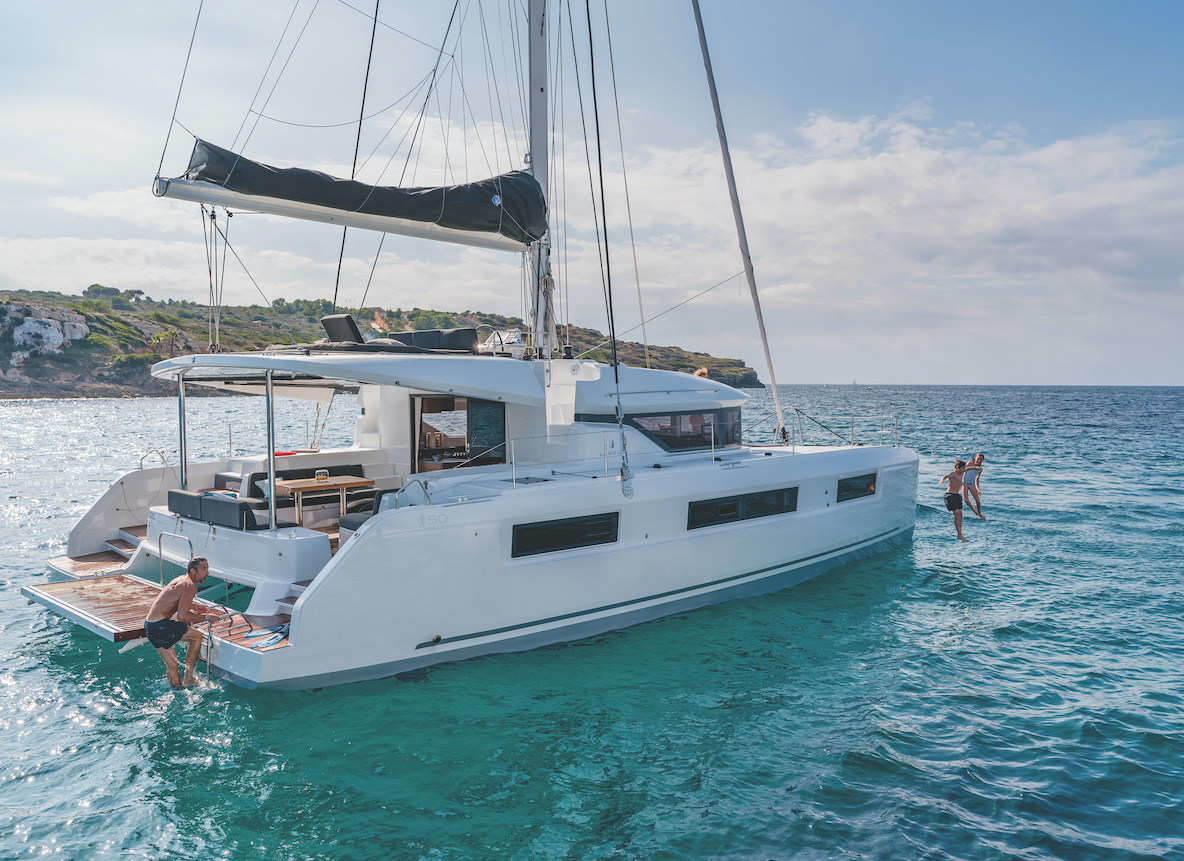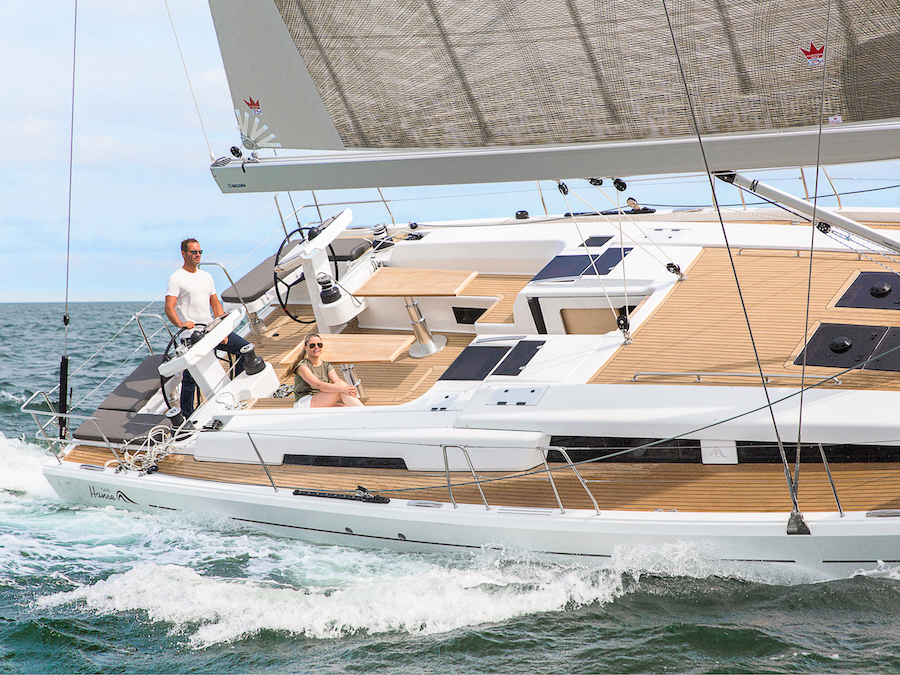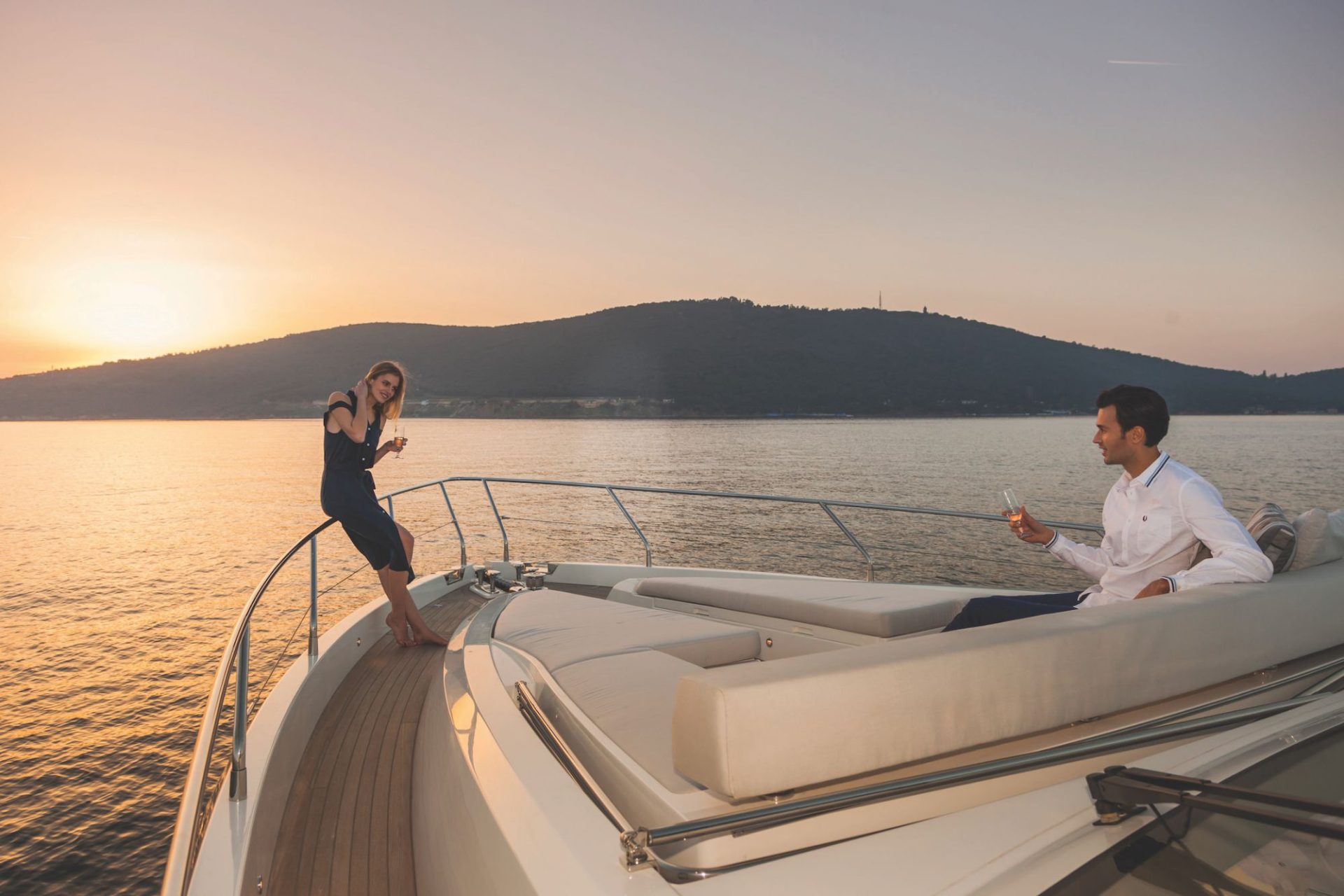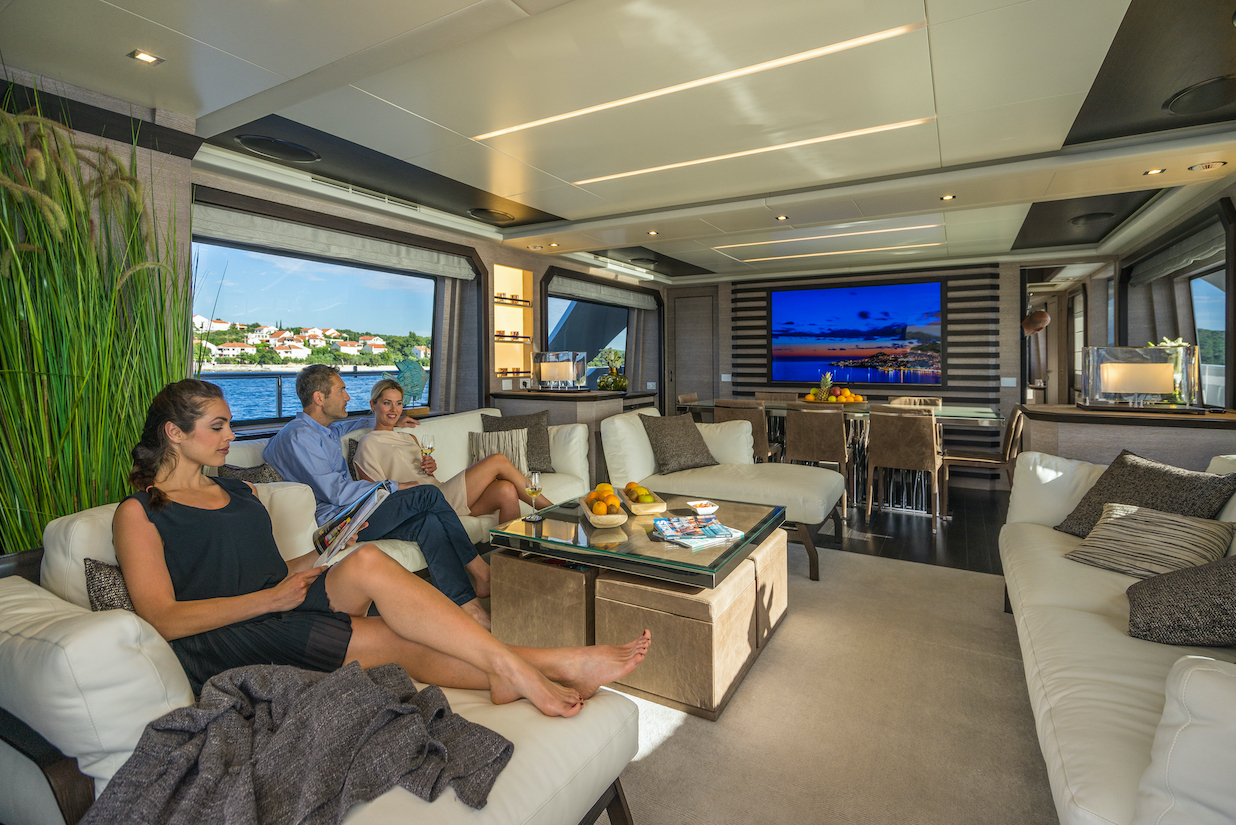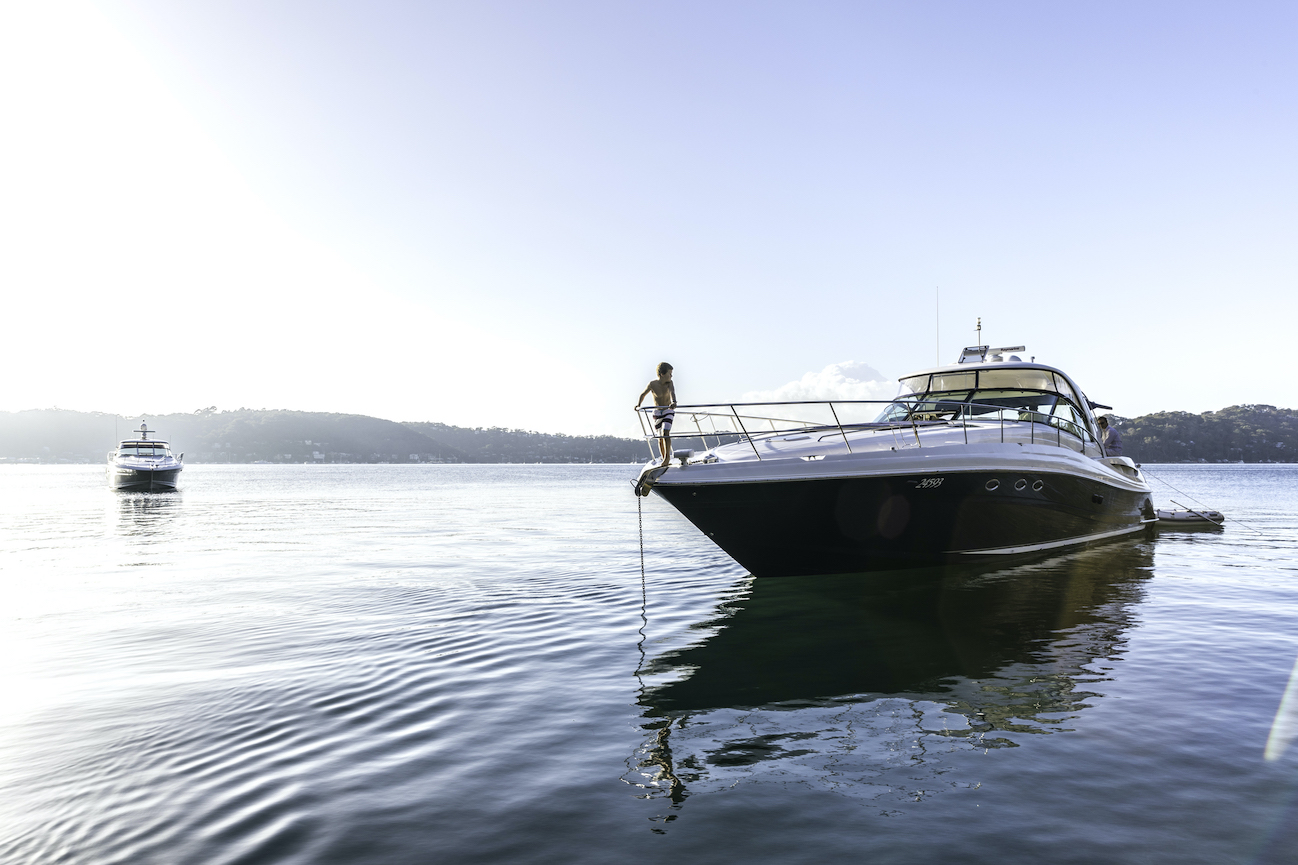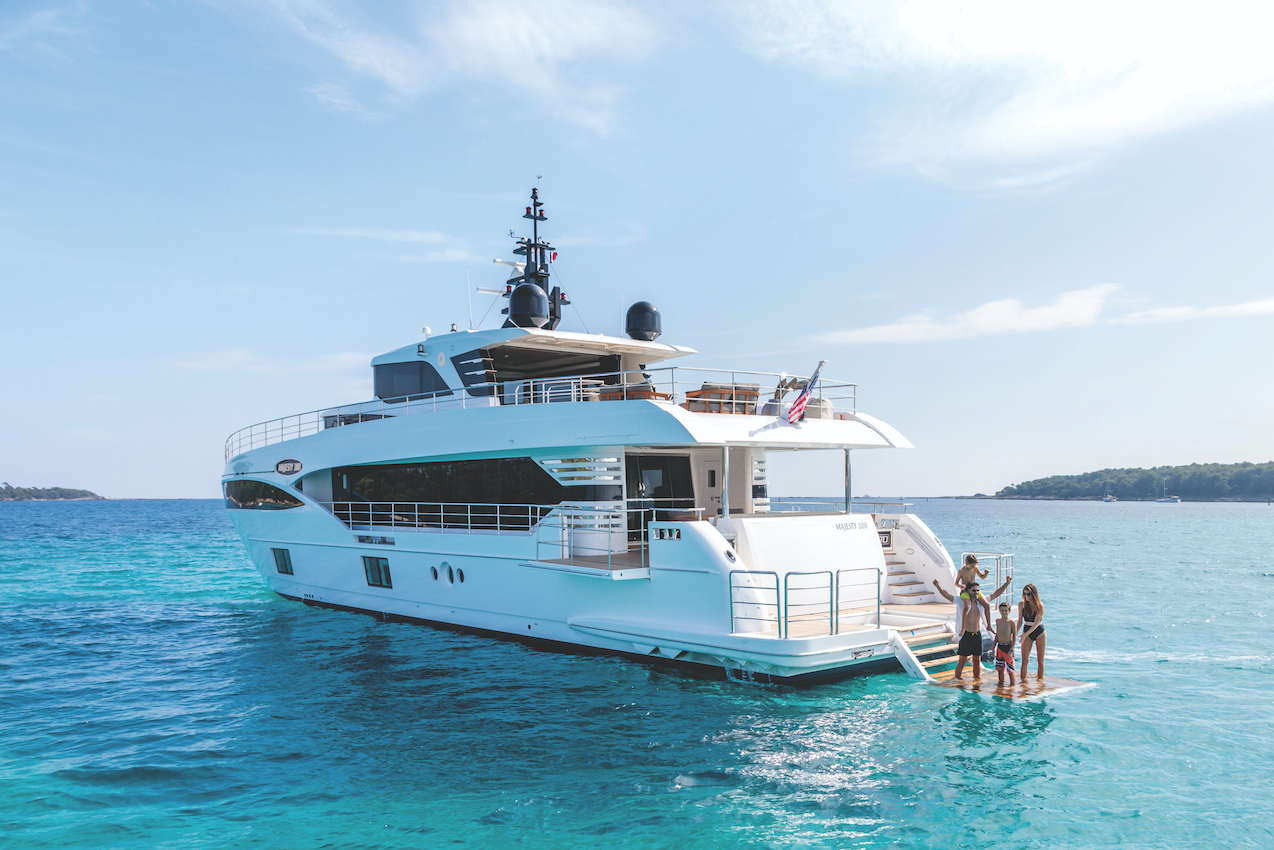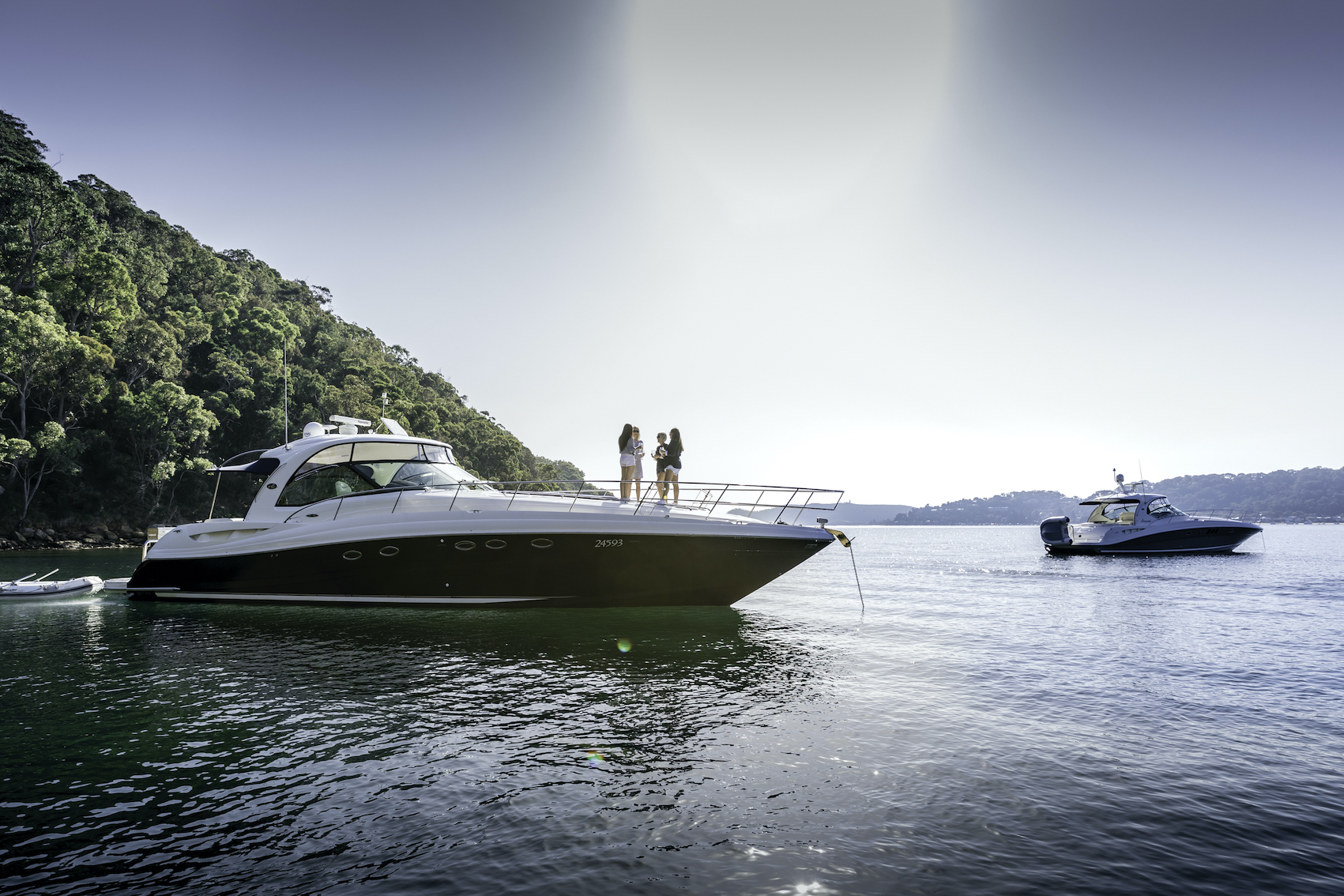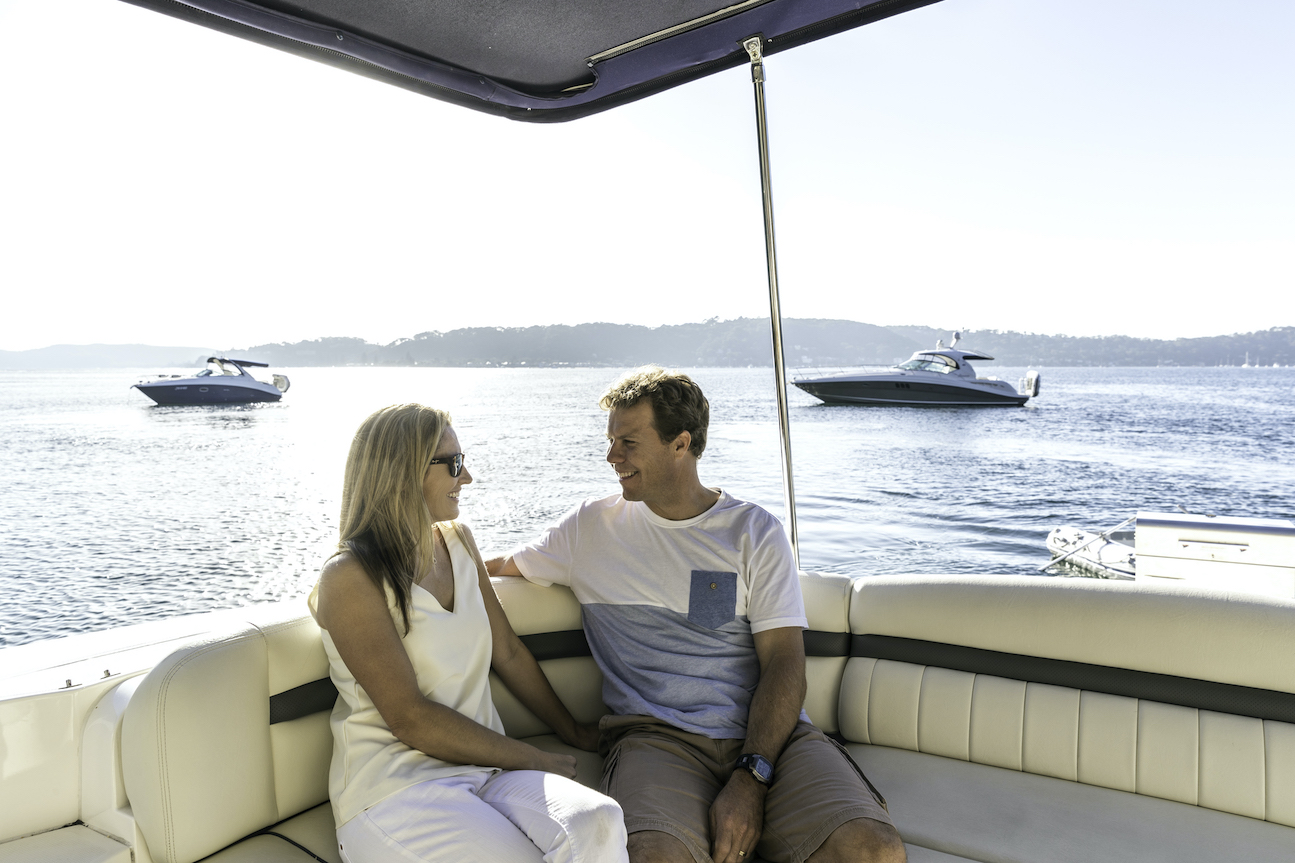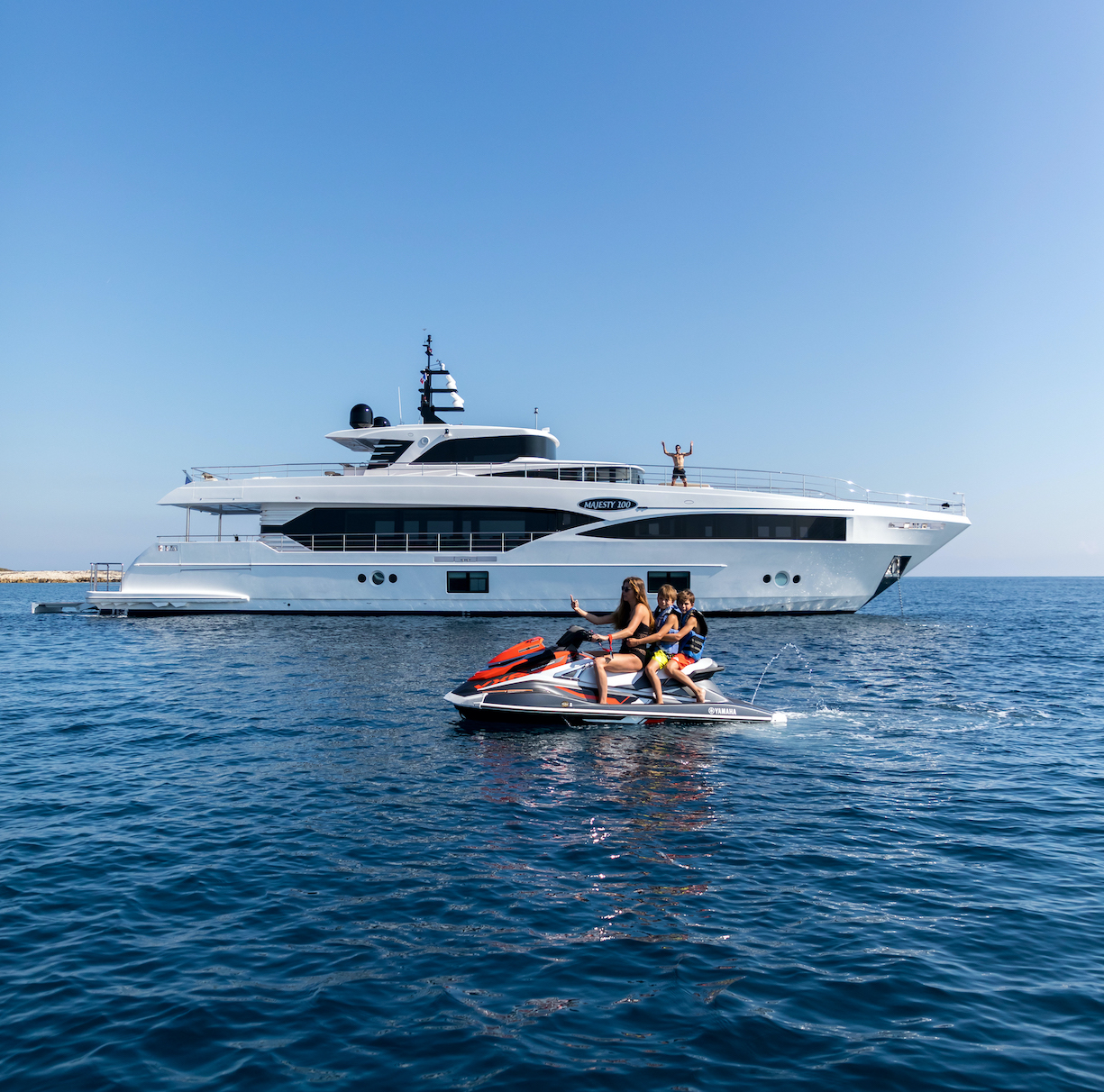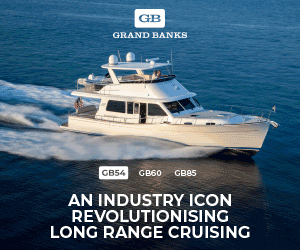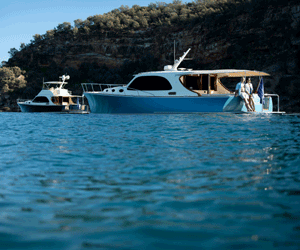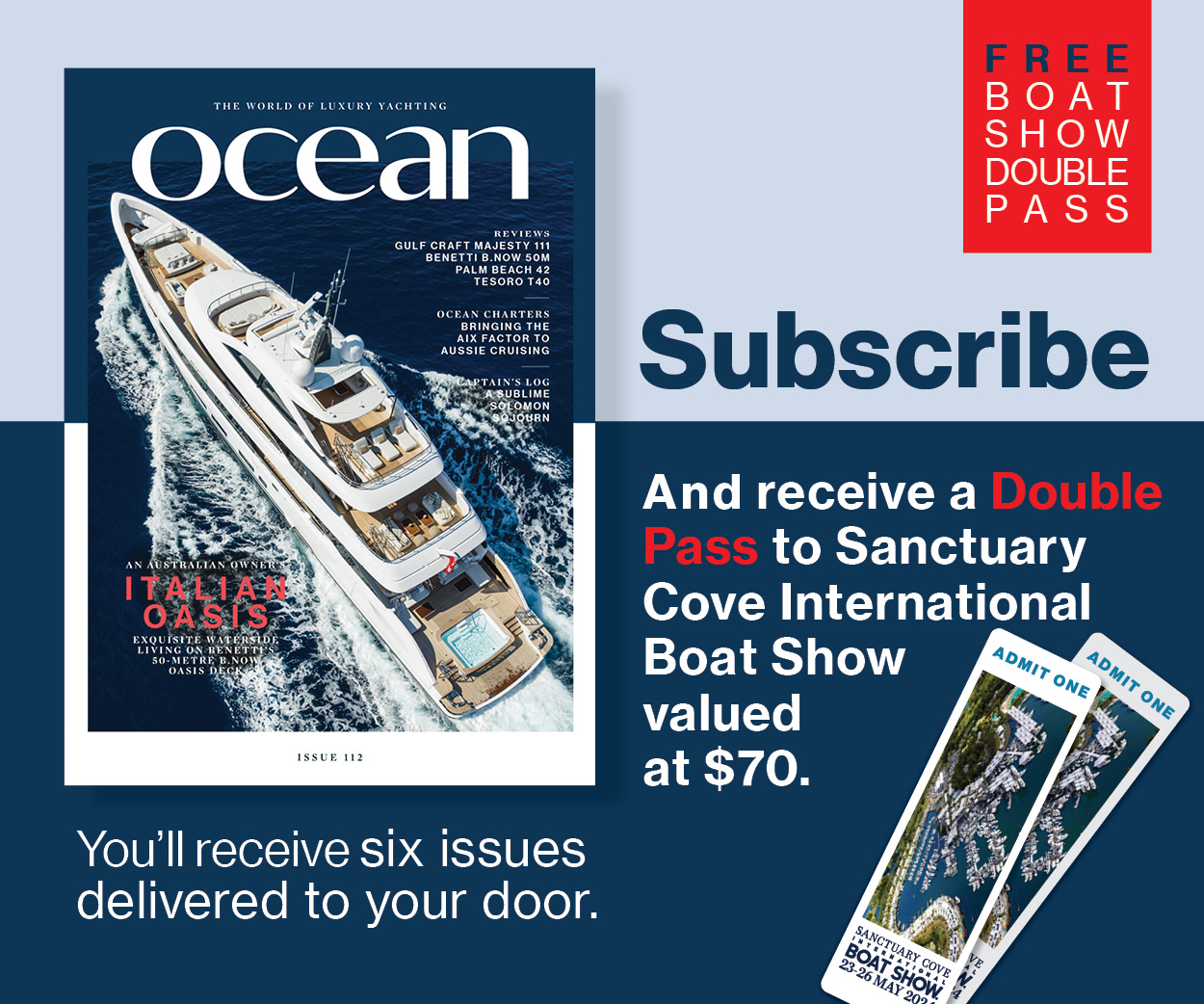All in the same boat
As attitudes to the sharing economy in the luxury sector evolve, we investigate the options on the table for a buyer who wants to share the costs and maximise the fun.
Written by Jeni Bone
18 June 2020
Those in the know have discovered that fractional yacht ownership, also known as syndication, is a flexible, economical and social way to maximise the enjoyment of having a boat, while allowing you to share the responsibilities of ownership.
There is a clear draw to having your own yacht but barriers to ownership, such as the costs involved and having the time to enjoy it, previously deterred many from taking the plunge.
As yacht charter at home and abroad rises in popularity among Aussies and Kiwis, a new wave of owners, familiar with the allure of chartering yachts well outside their ownership budget, is embracing syndication as a way of having access to their own vessel while mitigating some of the expense.
A fast stream to ownership
Owner demand has been the most significant factor in driving growth of the syndication market, according to Brett Vaughn, Director at Multihull Central. In particular, clients have previously found it difficult to justify buying their own big boat before retirement, both for financial and time-related reasons.
“Syndicates offer a good in-between solution before people are ready to take the leap and go cruising outright,” Vaughan adds.
Over the last decade, he has helped form around 17 Seawind catamaran syndicates in Australia and overseas. He has syndicated an Aquila 36, a new Aquila 44 and an Outremer 45, located in Sydney and Queensland.
“Most of the syndicates we have helped bring together are self-managed and also work well, but require a greater commitment of time from some of the owners to keep them operating smoothly. This is much like a body corporate of a strata complex.”
Flexible long-term commitments
Operating in the Med and soon Australia, Yacht Share Mediterranean (YSMGlobal) was established in 2016. Its first boat, a Hanse 575 based in Europe, has six owners and spent its first season in Croatia.
Each owner is given access to the boat for two months per year, one month in the peak season between May and October, the second to be taken outside of that period.
Many of the current owners are semi-retired professionals seeking a step-on, step-off experience, and this year will be cruising in Sardinia, with Corsica, Italy, Malta or Spain next on the itinerary.
“Each shareholder pays his or her portion of the capital costs of the yacht, AU$175,000 per share, plus running expenses (equally shared), and a management fee of AU$5,000 per share per annum,” says YSMGlobal’s Director, Trevor Joyce.
“They own a sixth of a very high-spec boat that they would have otherwise been less likely to afford. It is professionally maintained and serviced, completely managed by YSMGlobal. The boat is exceptionally easy to manage for two people, with electric winches, in-mast furling, self-tacking jib, and bow and stern thrusters. It is set up for ease of handling.”
At the end of the three-year syndicate term, the owners can choose to extend the term or the boat is sold on the open market with the proceeds shared. Alternatively, one or more owners can choose to buy out the others.
“It is working so well, I think they will more than likely extend the agreement,” Joyce comments.
We consistently hear from our owners that it is the best decision they have ever made, and there are plenty of places they want to explore.
The forthcoming Australian extension of YSMGlobal will be an extrapolation of the European concept, involving a Hanse 548 and 10 owners. A further syndicate is being considered for the Australian and Kiwi market, to spend summers in the Bay of Islands and winters in the Whitsundays.
Membership over ownership
As an alternative scheme to ownership, Pacific Boating provides a boat club membership offering. Think gym or golf club membership, with a joining fee and monthly subscription for use of the club’s facilities, in this case, Pacific Boating’s fleet of luxury sports cruisers.
Phillip Pitt founded the business in 2006 and has seen it grow from four boats to 19, from four staff to 42. It has gone from a single harbour location to three, and today it offers the opportunity to cruise Sydney’s waterways to over 700 members and their guests. Its Sydney locations in Rozelle Bay, Rose Bay and Pittwater are gateways to cruise Sydney Harbour, Pittwater and the Hawkesbury.
“For an annual membership fee of around AU$895 per month, which is AU$10,000 per year, members have access to 30 days per year,” says Pitt.
“We have a fleet of 19 sports motor cruisers, from 29–52 feet, with 2006 models onwards. Our members have none of the costs and hassles of owning a boat, which can be from 15–25 percent of the cost of the boat.”
Members use an online tool to book their trip and the boat is ready to go when they arrive at the marina, cleaned, detailed and fully fuelled. The Pacific Boating team is on hand for the return of the boat to assist with docking and unloading, set to prepare the boat for the next member.
“The major difference between our model and syndication is the flexibility it offers. Our members can use any of our 19 boats at any of the three locations. They can sign up for any period of time from as little as 12 months, but we also offer five- or seven-day memberships so you can bring your gear and go,” adds Pitt.
A flexible solution Operating a fleet of Benetti, Absolute, Sunseeker and VanDutch motor yachts, SeaNet offers owners “a turn-key yacht ownership experience and all the benefits of yacht ownership without the hassles of staffing, maintaining or servicing your yacht.”
The company was founded by Matty Zadnikar due to the hassles he experienced as a yacht owner in the past, as well as those he was told about by other owners, both past and present. As a managed syndication, buyers can own up to 50 percent of a yacht or boat. By limiting the number of owners per vessel, each co-owner has guaranteed use during peak cruising seasons, adds Zadnikar.
As well as fractional ownership of their yacht, co-owners are able to exchange time on their own yacht for access to SeaNet’s growing fleet of luxury yachts in the Bahamas, Caribbean, Mediterranean and US.
There is strong interest in forming a fleet in the Asia–Pacific region.
Self-managed syndication
In contrast to the fully-managed syndication model is self-managed syndication.
Established in 2010, Boat Equity is an online platform that allows anybody to syndicate their boat: an owner can sell shares in their boat or a dealer can start a syndication arm to their business.
The entire process is managed online, which means friends, business partners or complete strangers can set up a self-managed syndication, sharing costs and time. Users are able to see an online calendar and there is a points-based booking system, balancing high and low seasons.
The company’s Director, Evan Moore, believes the rise of syndication has a lot to do with the falling costs of other types of travel and take-up of the sharing economy in all its forms.
“People are realising how little they use their boats and they are travelling more, which is competing with boating time. The younger generation do not want the commitment and are more in tune with the sharing economy.”
The system is used by a number of dealers including One Brokerage, MW Marine, MB Yachts, Stefan Boating World, Premier Yachting and Leigh-Smith Yachts.
“Our main focus is on showing dealers they do not have to reinvent the wheel,” adds Moore. “If they want to get into syndication, which is growing so they should, then Boat Equity has the complete framework they can harness.
“It allows a lot of creativity. We have customers who have ordered new boats and, while they wait, they use shares in our boats so they can start boating straight away.”
Matt Willet, Director at MW Marine, has been using the system for around four years and recommends it to his customers. He also has a personal share in a boat using Boat Equity.
“People are attracted to managing it themselves and saving on costs. They tend to share the various responsibilities; one might specialise in accounting, another be a mechanic, and others have different skills to help manage the vessel.
“The Boat Equity system assigns everybody a role, so nothing is overlooked. It is a lot more flexible and personal than being a one-tenth owner in a managed syndication. Owners invariably swap dates if they cannot use it. Sometimes people become friends, but they do not have to be,” says Willet.
From the builder
Lagoon has entered the syndication market via Smart Boating, with the purchase of a new Lagoon 40 and 42 in partnership with The Multihull Group (TMG).
TMG’s Managing Director John Cowpe is delighted with the growing partnership and says it gives people a great way to trial boat ownership to see if it is for them.
Cowpe says, “The growth of the sharing economy means that more people are looking for a different way to own a boat and experience life out on the water.”
He continues, “Owning a share in a Smart Boating syndicate is a more affordable and accessible way to achieve that. For a 10 percent share, you get 100 percent of your own boat when onboard.”
Numarine also offers Aussies syndicated ownership. Paul Miletta, Q7’s Director, says Sydney is a rapidly growing market for the model, particularly for corporate clients who were previously spending tens of thousands of dollars a year to charter but can instead take part ownership of a vessel at a fraction of the cost.
“A client can split a quarter share of a brand new Numarine 62 Fly (which boasts the largest volume in its class) for less than the cost of owning a 10-year-old, 40-foot motor yacht, and is able to use it for a guaranteed 86 days per year with unlimited standby,” Miletta adds.
Sweetening the deal, the Numarine package can be offered as skippered or self-drive, with door-to-door service in chauffeured cars, provisioning with specified choices of drinks and food or even a private chef for the ultimate five-star experience.
“We are offering a truly first-class, walk-on, walk-off service. Our clients expect this when they fly, so why shouldn’t they when on the water?” Miletta explains.
As collaborative consumption pervades every aspect of modern life, from pets to Porsches, the various forms of boat ownership will only diversify, growing the entire pool for all and proving a boon for businesses on board.


